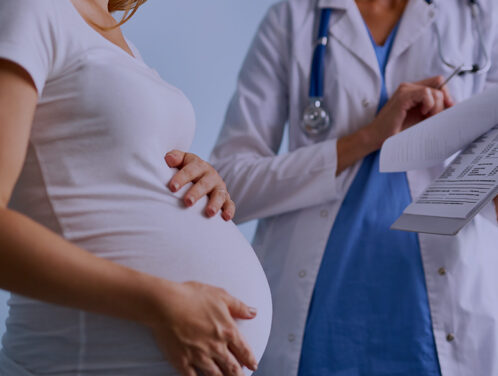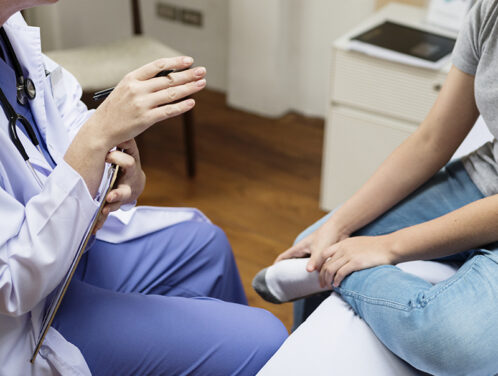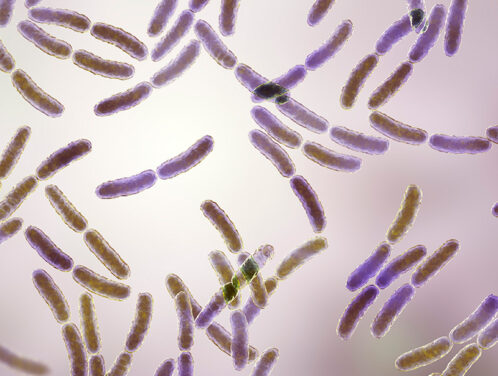Vaginal infections are an unpleasant but common fact for many women. Each year in the U.S., more than a million women get yeast infections, according to the Cleveland Clinic, and 1/3 of American women get bacterial vaginosis during their lifetimes. Even a mild vaginal infection can be painful and unpleasant. If they’re not treated, some kinds of vaginal infections can also cause lasting health problems, including infertility, increased risk of sexually transmitted infections (STIs), and pregnancy complications.
Why are these infections so common, and why do they happen? In some cases, there’s a clear cause, such as contracting an STI from a sexual partner. In other cases, vaginal infections are influenced by lots of factors, including your diet, sexual activity, contraceptive use, pregnancy status and antibiotic use. The reason these things can affect your vaginal health is because they can affect its microbiome.
What exactly is the vaginal microbiome?
If you’re not familiar with the term “vaginal microbiome,” you’re not alone. While many people know that the mix of bacteria and other microbes in our intestines is necessary to digest food and absorb nutrients, this microbiome gets less attention.
However, your vaginal health depends on the unique balance of bacteria, viruses and even fungi living inside the vagina. This “intricate and dynamic microecosystem” changes throughout your menstrual cycle, during pregnancy and the post-partum period, and after menopause. A well-balanced vaginal microbiome contains more Lactobacillus bacteria than anything else, and these bacteria “produce various antimicrobial compounds” that fight infection.
When Lactobacillus declines in the vagina, infections like bacterial vaginosis (BV) can break out. BV can cause pain and itching, along with a foul-smelling discharge. When BV goes undetected or untreated it can raise a woman’s risk of catching STIs, cause pelvic inflammatory disease, and raise pregnant women’s risk of miscarriage and pre-term birth.
Yeast infections can also arise when the vaginal microbiome is out of balance. If you’ve ever developed a yeast infection during or after a course of antibiotics for another infection, you’ve likely experienced the impact of changes in your microbiome on your health. Antibiotics, though helpful for treating bacterial infections, can cause “an imbalance in natural vaginal flora” that causes an overgrowth of a fungus called Candida. The result? An itchy yeast infection.
By keeping your vagina healthy, a properly balanced microbiome can also reduce your risk of urinary tract infections and support your ability to conceive and carry a pregnancy to term, according to the Vaginal Microbiome Consortium at Virginia Commonwealth University. Researchers there have even found that a woman’s vaginal microbiome may “seed” her baby’s microbiome at birth, expanding the importance of vaginal health from one generation to the next.
What causes changes in the vaginal microbiome?
There are many things that can influence your vagina’s natural microflora, including
- Sexual activity, especially sex with a new partner, sex without condoms and sex with multiple partners.
- Hormonal changes, such as the normal monthly changes of the menstrual cycle, pregnancy and postpartum hormone shifts, and menopause.
- Use of hormonal contraceptives (birth control pills) or “hormone therapy that increases estrogen levels.”
- Use of antibiotics.
- Some systemic health conditions like diabetes and immunodeficiency.
- Chemicals found in some soaps, personal care products and scented tampons and pads.
- A damp environment caused by wearing wet or tight clothing.
- A diet that’s high in sugar and low in probiotics.
- Smoking. It’s not clear why smokers are at increased risk for an unbalanced vaginal microbiome, but there’s some evidence that nicotine affects Lactobacillus in ways that may raise their risk of BV.
How do I prevent a vaginal infection?
Some simple updates to your self-care routine can help protect your vaginal microbiome and reduce your risk of infections. For example:
- Don’t douche, use feminine deodorants or use scented pads and tampons. These products can irritate the vaginal opening and allow an infection to take hold.
- Change out of wet workout clothes and swimwear as soon as possible to avoid creating a humid environment where yeast can flourish.
- Reduce the amount of time you spend wearing tight clothing like jeans and pantyhose that can trap moisture near your vagina.
- Wear cotton underwear instead of synthetic fibers.
- Keep any item that has touched your anus away from your vagina to avoid contamination with fecal bacteria.
There are also lifestyle changes you may choose to make to reduce your risk of vaginal infections, including:
- Using condoms or dental dams with your sexual partners to reduce the introduction of new microbes to your vagina.
- Adding yogurt, kefir or probiotic supplements to your diet may increase your exposure to beneficial bacteria.
- Stopping smoking, to avoid the effects of nicotine on your vaginal microbiome.
- Reducing the amount of sugar and simple starches in your diet may reduce your risk of recurrent yeast infections.
- Maintaining your overall health as best you can, especially if you have chronic conditions like diabetes or are immunocompromised.
Finally, talk to your health care provider if you think you have a vaginal infection or if you have questions about vaginal health. Vaginal health testing can help diagnose your issue accurately so your provider can prescribe the most effective treatment. To learn more about vaginal health testing options, MyPathAdvantage.com/faqs.






